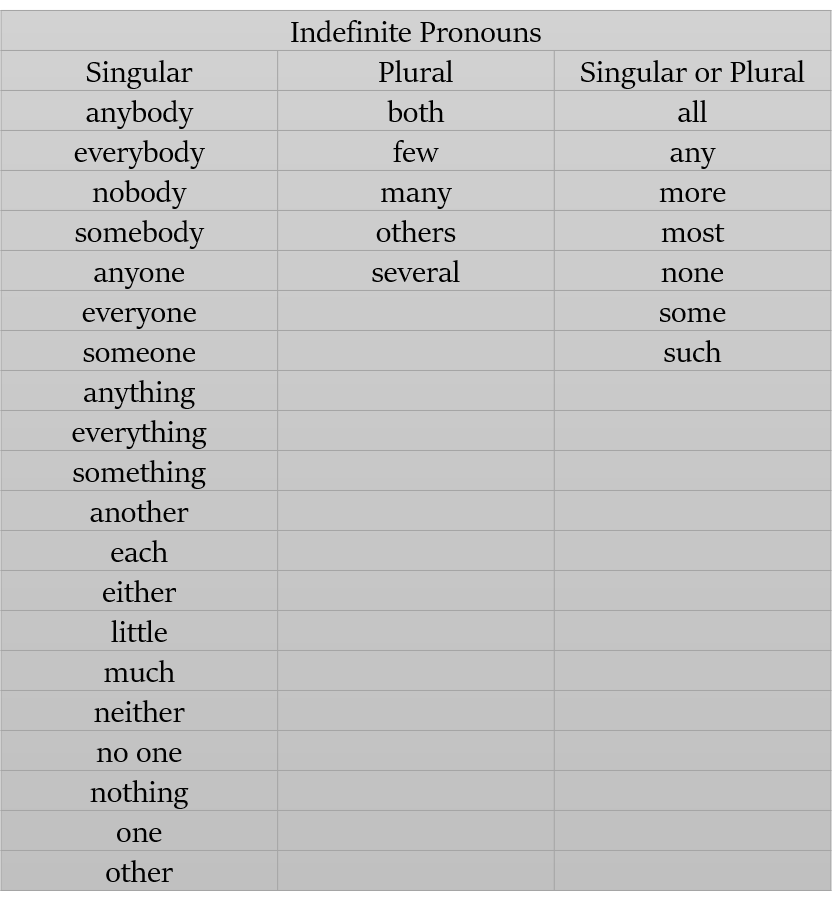Indefinite Pronouns
What are Indefinite Pronouns ?
Indefinite Pronouns refer to persons or things in a general way (and not any particular person or thing).
It is used to tell about indefinite numbers and quantity. So, it gives an indication of uncertainty.
E.g. both, all, some, one, none, few, little, any, many, much, more, most, half, enough, several
Also these → Every/Some/No/Any + body/one/thing
Some people are eccentric.
One should fulfil one’s duties.
None but fools will believe that.
Some other words may also function as Indefinite Pronouns, e.g. they, other/others.
They say that the ship broke in half before it sank. (They – it means people in general)
They say that Lehman Brothers has gone bankrupt. (They - some people)
One or other of us will constantly be there with you.
You should do good to others.
Singular and Plural Indefinite Pronouns
There are many Indefinite Pronouns that are:
- Singular – they will take singular verbs
- Plural – they will take plural verbs
- A few of them can be both singular and plural.
A list has been provided below:
Every/Some/No/Any + body/one
Let us see the pronouns that we can use in place of Every/Some/No/Any + body/one.
Concept 1
In referring to anybody, everybody, everyone, anyone, each etc., the pronoun ‘he’ or ‘she’ is used according to the context.
In case of these pronouns, we generally use pronouns according to ‘he’.
Everybody has done their best. (incorrect)
Everybody has done his best. (correct)
In case of ‘women’, use pronoun according to ‘she’.
There are a number of girls in the classroom and everybody knows how to enjoy himself. (incorrect)
There are a number of girls in the classroom and everybody knows how to enjoy herself. (correct)
In case of ‘both man and women’, use ‘he or she’.
Among these boys and girls nobody has absented himself so far.
Concept 2
In case of question tag, we use pronoun ‘they’.
Nobody has arrived yet, have they?
Every/Some/No/Any + thing
Let us see the pronouns that we can use in place of Every/Some/No/Any + thing, i.e. Everything/Something/Nothing/Anything.
Concept 1
Pronoun for them will be used according to ‘it’
Nothing happens themselves in this world. (incorrect)
Nothing happens itself in this world. (correct)
Concept 2
In case of question tag, we use ‘it’.
Something is fishy, aren’t they? (incorrect)
Something is fishy, isn’t it? (correct)

Extra Books and Tools
If you prefer to learn via books, or want some good English Grammar books for reference purposes, you may read this article which enlists some of the books recommended by us.